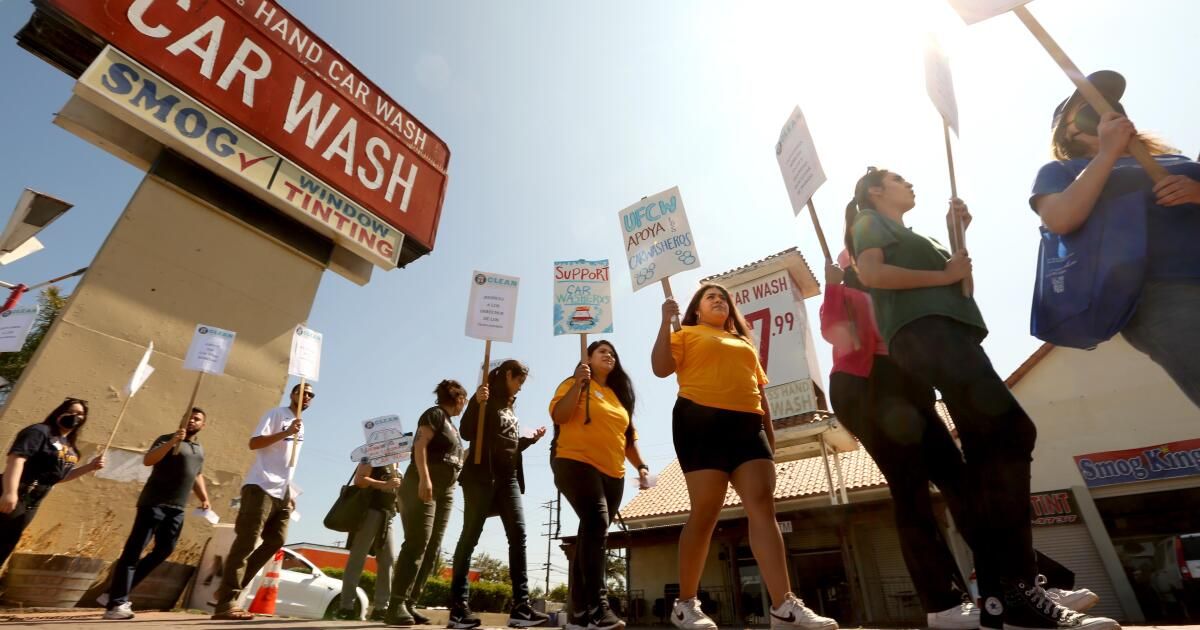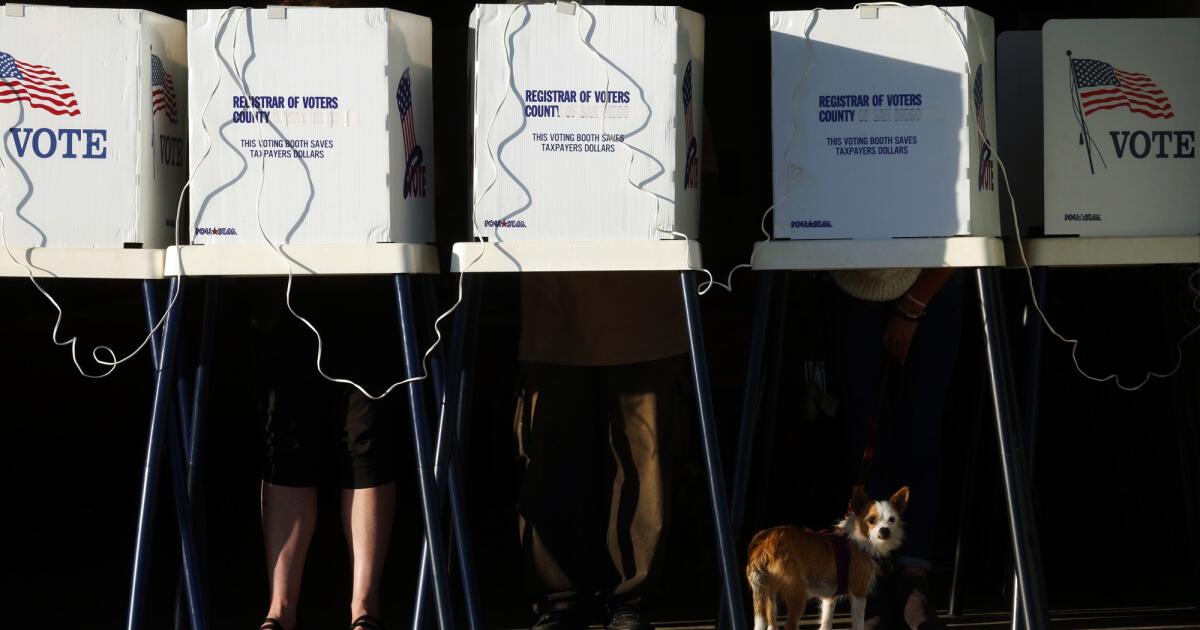A year ago, thousands of workers went on strike across California, and what became known as the “hot summer of labor” resulted in mandated wage increases and other state policy victories notable even for a Democratic-controlled legislature sympathetic to union concerns.
But as the latest legislative session drew to a close Saturday, unions that have long held formidable sway in Sacramento felt a chill at the state Capitol compared with last year.
A bill seeking to provide unemployment benefits to striking workers failed before reaching Gov. Gavin Newsom’s desk. Legislation backed by journalist unions to require Google to pay news outlets for content was shelved in lieu of a watered-down deal. Worker-backed proposals to support grocery store jobs instead of self-checkout machines, expand protections for workers who join picket lines and limit government agencies’ use of temporary contracts to replace unionized jobs also failed.
Meanwhile, legislation delaying the deadline for hospitals to meet seismic safety standards passed both chambers despite strong opposition from a slate of unions, including the California Service Employees International Union, which said they were “deeply disappointed” with lawmakers and urged Newsom to veto it.
“Workers are still hurting, and we’ve had opportunities to improve the economy and create good careers and make sure our most vulnerable populations are in the front line for these careers, and we squandered them,” said Sen. Lola Smallwood-Cuevas (D-Los Angeles), chair of the Senate Labor, Public Employment and Retirement Committee.
As the state struggles with a multibillion-dollar budget deficit, Smallwood-Cuevas, who was a longtime labor organizer before joining the Legislature, is frustrated that Newsom has warned against spending in some cases but not in others.
She pointed to a package of 10 bills Newsom signed last month that crack down on retail theft and require state funding, and questioned why his Department of Finance opposed a bill she wrote that would strengthen enforcement of anti-discrimination employment laws because of fiscal concerns. The legislation has passed both chambers and awaits consideration by the governor.
“It’s not that workers are no longer fighting for opportunities or that this Legislature has taken some sort of lull,” Smallwood-Cuevas said. “The question is: What are our priorities?”
Assemblyman Ash Kalra (D-San Jose) called his own legislative record of union-friendly proposals this year “a bloodbath.” His bill to study raising the state minimum wage, including for incarcerated workers, was put on hold last month.
“We’ve done so much over the last few years that at some point you just allow those points to be implemented and those fights to continue at the bargaining table and in the community,” he said. “Not everything has to be done at the Capitol.”
Last year, the Capitol did a lot for workers. Newsom signed first-in-the-nation laws that raised wages for workers in the fast food and health care industries, mandated more sick days for all Californians and banned employers from asking employees if they smoked marijuana.
While Democrats lamented the state budget snafu for stifling pro-labor momentum, Republicans welcomed what they saw as a small respite from the state’s most powerful lobbying industries. Unions like SEIU and the California Teachers Association are consistently among the top donors to independent expenditures that help elect pro-labor Democrats.
Sen. Shannon Grove (R-Bakersfield) called California unions “the fourth branch of government” because of their influence in the state Capitol.
Assemblyman Heath Flora (R-Ripon), vice chairman of the Assembly Labor and Employment Committee, opposed several labor-backed bills in part because of concerns that new regulations could shift costs to consumers or sink struggling businesses.
He said Democrats are too quick to cave to labor demands before details are worked out, pointing to the new health care minimum wage that was set to take effect this summer but was delayed by Newsom amid cost concerns.
“They got a lot of things last year and some of the things they asked for this year were pretty aggressive. I’m glad we took a break,” Flora said. “We should definitely slow down.”
Still, California still has some of the strongest labor protections in the country. Labor-sponsored bills passed by the Legislature this year include legislation to prohibit companies from forcing workers to attend some meetings and new labor protections for court reporters and nursing assistants.
Unions also won hard-fought reforms to a law known as the Private Attorneys General Act, which allows workers to sue employers for wage theft and other alleged workplace abuses.
Lorena Gonzalez, president of the California Labor Federation, said the so-called hot summer is “endless” and that unions have accomplished many of their priorities, but there is more work to be done.
“We’re going to have some losses, and in a bad budget year, we expect a little bit more than normal. So we’ll prioritize as we go along,” he said. “We’re always going to have one of the most aggressive agendas in the United States.”
The real power is not in the Capitol, he said, but in ordinary workers and union members across industries.
“What we are seeing on the streets is not stopping,” he said.












